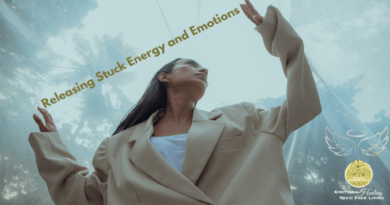The mental health benefits of practicing gratitude
Ever wonder why people encourage us to focus on and cultivate an “attitude of gratitude”? Quite simply, it’s because it creates a positive impact on our own mental health. Here’s how it works…
Let’s say I have a bad day. In the re-telling of my day, I tell you about all of the things that went wrong; I literally list off, incident by incident, each one in great detail. I have a negative focus or lens on every single thing or situation that makes me feel bad, upsets me, throws my schedule off, and so on.
Did you catch what I said? I’m mentally keeping a list in great detail. That means as I’m going through my day, I’m literally keeping track of everything that goes wrong. It’s my mind’s tendency to focus on everything with a negative focus or lens.
Yet the key here is our power of choice – we get to choose what to focus on, remember, share or keep track of. This is where we each hold the key of empowerment. Every moment is a new choice. We can use our power to consciously choose what to focus on and what to do next. We have the power to shift our mind’s focus or lens by practicing the conscious pause and active shift into gratitude.
Learning anything new takes time; we can’t do it all in one day, especially if we’ve never done it before, or have never done it with ongoing consistency. Be patient with yourself. Patience and consistency are our keys to success in building our own healthy habits. Prioritizing, scheduling, practicing and repetition builds our habits, or in this case, our attitude of gratitude.
Gratitude is the quality of being thankful and expressing appreciation for what we have and for what we have positively experienced, rather than focusing on a lack or that which we don’t have. At a time when many of us are struggling to adapt to a new normal, practicing daily gratitude and a positive focus is more important now than ever. Begin by building gratitude practices into your daily schedule. Here are a few ways you can practice gratitude and experience the impact of its positive mental health benefits:
- Expressing gratitude can improve your mood leading to lower rates of stress and depression. Write a note, leave a voice mail, or send an email or message to someone you are grateful for, telling them why and what impact it had on you. Once a month, write a letter to yourself.
- Showing gratitude regularly can make you more optimistic and helps you to have a more positive outlook on life. Focus on something positive about a situation or if needed, distract yourself for a few minutes by thinking about something else that you are grateful for.
- Practicing gratitude builds connection by helping us feel more loved, included, and appreciated. In each weekly meeting or at regular times such as a meal with others, have each person state something they are thankful for and something specific to that day that they are thankful for.
- Practicing gratitude can improve your physical health by increasing your energy levels. A regular gratitude practice can help you stay motivated and keep you feeling more energetic so you can tackle what’s next.
- Write it down. Keeping a gratitude journal is important because it is a record of what happened that you can refer back to later. Once a week or every night, set aside a small moment of time to reflect on your gratitude practices.
- Be patient with yourself and don’t be critical of yourself if you skip or miss a day, it’s all OK. Every moment is a new beginning. Simply start again, now.
Regular gratitude practice helps us acknowledge the goodness in our lives and helps us recognize that some of that goodness comes from outside of ourselves. This helps us feel more connected to something larger than ourselves, giving us a sense of purpose, belonging and interconnectedness, and also helps us realize that we play an important role in impacting our world.
If you or someone you know is experiencing a mental health emergency, it is important to visit Valeo’s Crisis Center located at 400 SW Oakley Avenue. Valeo’s Crisis Center never closes, it is a walk-in emergency clinic, with no appointment necessary. Valeo’s 24-Hour Crisis Line is 785-234-3300.
Valeo Behavioral Health Care
785-233-1730
Crisis Services
400 SW Oakley
Topeka, KS 66606
24 Hour Crisis Line
785-234-3300
National Suicide Prevention Life Line
1-800-273-8255
Shawnee County Suicide Prevention Coalition
Family Service and Guidance Center (18 and under)
325 SW Frazier
Topeka, KS 66606
24 Hour Crisis Number
785-232-5005
Healing after Loss to Suicide Group (HeALS)
Sandy Reams – Group Facilitator
Topeka.Heals@gmail.com
785-249-3792





